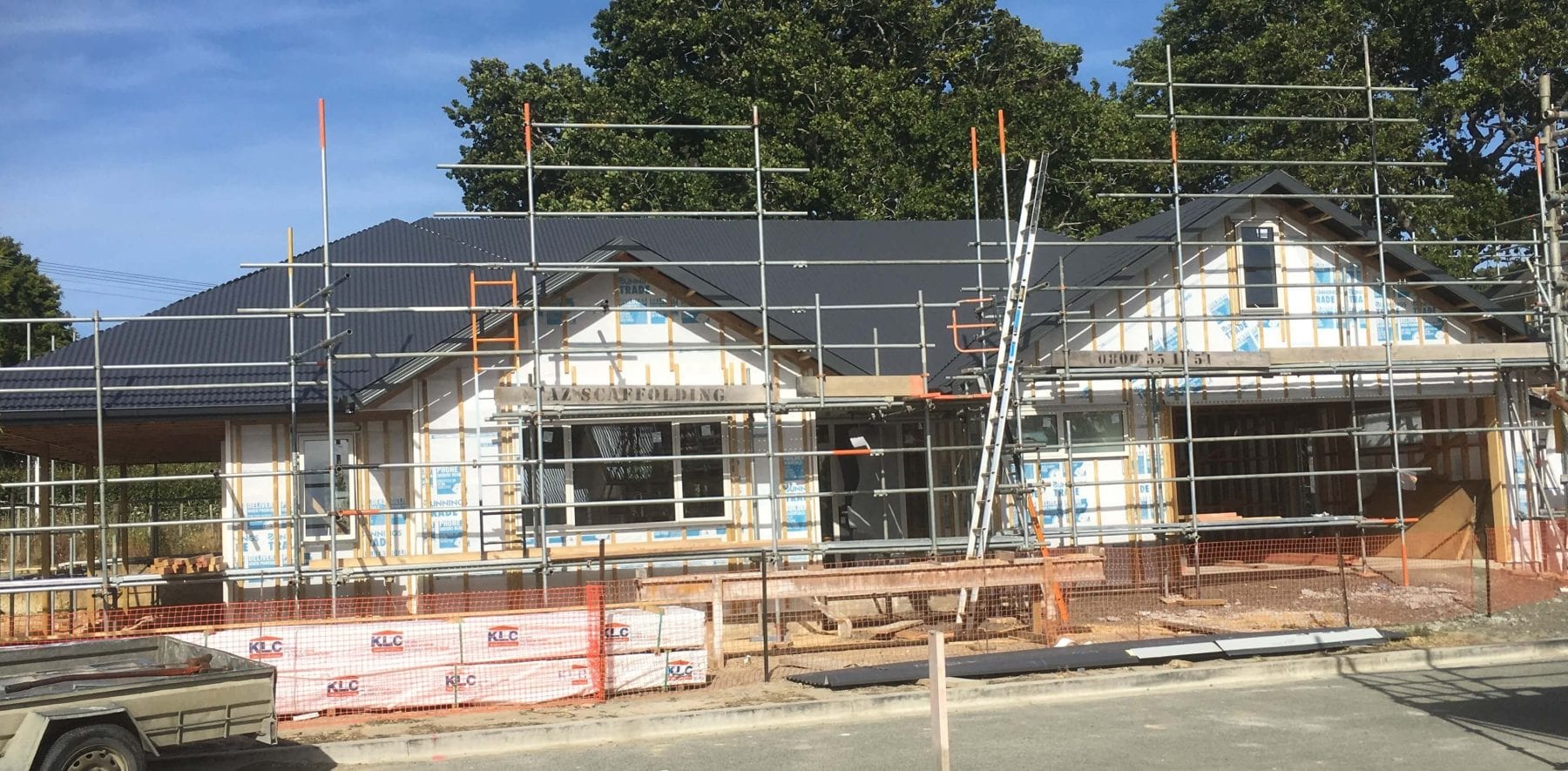Whether you’re building new or doing an alteration, extension or renovation, your contract will require contract works insurance be arranged to cover the work. The policy provides cover for sudden and accidental loss or damage to the works specified in the contract, including from:
- Fire
- Theft
- Vandalism
- Construction collapse
- Storm & flood damage
- Natural disaster – earthquake, landslip, tsunami
- Other accidental damage to the contract works
However, there are some common issues with claims under contract works insurance that often catch builders out.
When does the policy expire?
Regardless of the end date shown on your policy, and depending on your insurer’s specific terms, the cover will stop on the earlier of:
- Practical completion
- When the owner starts using the building
- If it’s a spec, when 95% of the budget is spent
- The end date on the policy
So you may not have cover if the owners move in, or even if they begin storing their stuff in completed parts of the building.
Is faulty workmanship covered?
Damage caused by faulty workmanship is not covered by contract works insurance. It may be a liability insurance claim, but that will depend on the wording of your liability policy.
Are scratched windows covered?
If this is deemed to be faulty workmanship the cost of replacement may not be covered. The typical scenario is that “someone” scratches the glass, perhaps when cleaning off splashes of paint. Some insurers are declining claims if the appropriate glass cleaning standards aren’t followed. You should make sure everyone on site takes extreme care when cleaning glass.
Who pays the excess?
The excess for damage caused by natural hazards has increased substantially since the Christchurch earthquakes. Insurers all calculate it differently and unless your contract says otherwise you could be responsible for paying the whole excess. We recommend you specify who pays the excess (or what proportion each party is responsible for) in your contract.
Extending the policy can cost more than adding on a month or two when you first take it out
If the project is delayed you must remember to extend the policy. In general we recommend adding a month or two on at the start, just to be on the safe side in case there are unforeseen delays, as this will cost peanuts compared to having to arrange an extension later, or worse still, forgetting to do so.
Is it the builder’s or homeowner’s responsibility to take it out?
If it’s a new build most contracts will require the builder to arrange the policy. Make sure you include the value of any materials supplied by the owner/principal, and if required list the sub-contractors that need to be covered too. You should also check that the allowances, such as for demolition, professional fees, removal of debris and cost inflation reflect the requirements of your contract.
If it’s an alteration, renovation or otherwise involves work to an existing structure, it is generally the owner’s responsibility to arrange contract works insurance. Most contracts will specify this and it’s for their protection as well as yours. Generally it’s advisable for them to arrange it with the same company that insures the existing structure, however sometimes this is not an option, it could be expensive or the existing structure may not be insured. If that’s the case they can apply for Builtin’s contract works cover for alterations and renovations online: www.builtin.co.nz/quote/contract-works-insurance-instant-quote.
Even if the customer is arranging the policy it should still include you and any subcontractors as insured parties. Make sure you see a copy of the insurance certificate before you start work.
What if I have an annual policy?
These can be very convenient and cost effective if you build new homes that are all in a similar price range. You don’t have to apply for cover for every job, or remember to extend it if a project is delayed. They’re not recommended if you do mainly alterations and renovations because of potential complications when existing structures are involved. Annual policies come with a maximum contract value. This means all contracts below this amount are automatically covered. However, any jobs that exceed this amount will have no cover at all. For those you’ll need to arrange a separate policy.
Are my tools and equipment on site covered?
Generally not, unless an extension is applied for to cover these items. Subcontractors tools are generally not covered.
Are existing structures on the site covered?
No. Most contract works insurance will only cover the works being built and in some cases temporary buildings such as a site office and signage. Any structures already on the site are not automatically covered. So if there is an existing septic tank or retaining wall these will need to be insured separately.
Ultimately the message is don’t assume you know what the policy will cover, or what you think it should cover. Contact your insurance adviser and have a chat to them about what your policy actually does (and doesn’t) cover. If they don’t know it might be time to talk to someone who does.




